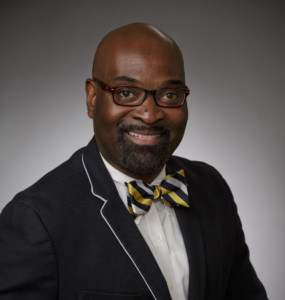PRAIRIE VIEW, Texas (April 1, 2020) – Fred A. Bonner II, Ed.D., professor, and endowed chair and chief scientist/executive director in the Department of Educational Leadership and Counseling at Prairie View A&M University, launched a book series, “Diverse Faculty in the Academy,” with Routledge Publishers.
According to Bonner, the book series aims to provide an opportunity to have a space to research, write, and talk about faculty members’ experiences in higher education, specifically in minority-serving institutions, such as historically black colleges and universities (HBCUs) and Hispanic-serving institutions, as well as predominantly white institutions.
“We want to provide these faculty members the opportunity to come together to talk about the critical opportunities and challenges they’re having to face in these educational spaces,” Bonner said. “So often we don’t hear the narratives and voices of faculty of color and what it means to be a faculty member in the HBCU context, or a female in engineering in a predominantly white institution, etc.”
The first book in the series is “Racial Battle Fatigue in Faculty: Perspectives and Lessons from Higher Education (Diverse Faculty in the Academy).” It was published in December 2019 and is currently available for purchase on Amazon.com. According to Bonner, “racial battle fatigue” is a theory coined by African-American professor William Smith at the University of Utah, a term that has been used by various black faculty members in predominantly white spaces. However, it was also used by two editors who are both Asian and solicited books from authors centered on this topic.
Bonner has two proposals for forthcoming books in the series, one of which focuses on black women in the academy (i.e., higher education) and the other on women in leadership.
“I really wanted to provide the opportunity and space for diverse faculty members in general, and I’m looking forward to featuring PVAMU and other HBCUs in general to share their narratives and stories about the great work they’re doing in these institutions,” Bonner said.
###
By Emilia Benton

